Junkyard Gem: 1961 Volkswagen Baja Bug

There was a time, decades ago, when Volkswagen Beetles modified to compete in off-road desert racing (or at least to look like desert racers) were used as daily transportation by many American drivers. Modified with exposed engines and fiberglass body parts, these Baja Bugs— as they have been known since the first ones appeared in Orange County, California, in the early 1960s— have all but disappeared from our streets now. That means they’ve also mostly disappeared from our junkyards; indeed, I hadn’t run across a single discarded Baja Bug since I started documenting automotive history in car graveyards back in 2007. Finally, I ran across today’s find: a genuine Baja Bug in a Denver-area self-service yard.
Volkswagen of America eventually came to embrace the Beetles that were cruelly sliced up into dune buggies and Baja Bugs, but it took awhile. When VW had me drive a stock-bodied Jetta at 206 mph at the Bonneville Salt Flats back in 2018 (because of my incredible driving skills I was the only automotive journalist living close enough who owned SCTA-compliant race gear), they brought along both a Meyers Manx and a 1969 Baja Bug. Here they are, photographed with my appropriate-vintage Ricohflex VII film camera.
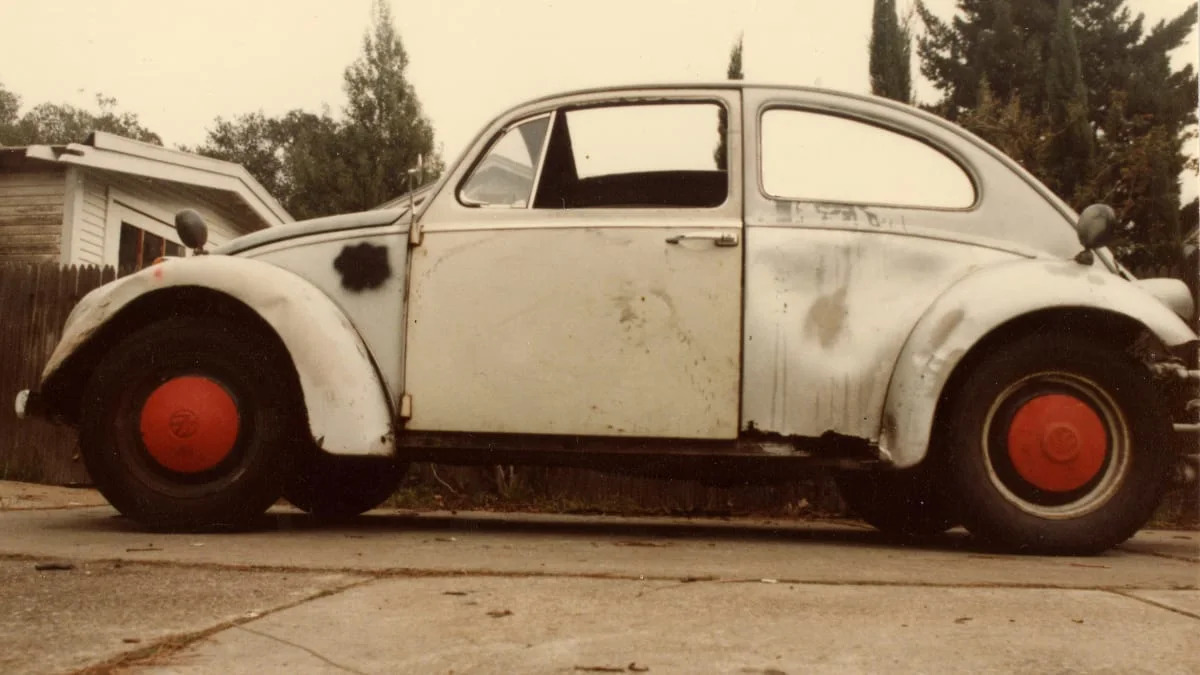
I came of driving age in Northern California during the height of the Baja Bug craze on the West Coast, and plenty of my high school classmates were roaring (at the time, the State of California had no exhaust-noise regulations for cars with engines displacing fewer than 1600 cubic centimeters, which applied in the theoretical if not actual sense to hopped-up air-cooled VWs, so these cars were LOUD) around town in Beetles in various states of Baja-ization. For reasons that made sense to me at the time (1983), I dropped 50 bucks on a 1958 Beetle with an alleged Porsche engine (actually a Type 3 VW engine with crank-mounted cooling fan, dual carburetors and straight pipes) and the entire rear body torched off in Baja-ish style. As a result of surviving far too many miles driven in this car, my heart is full of affection for Baja Bugs and it saddened me to see today’s Junkyard Gem meet such a fate.
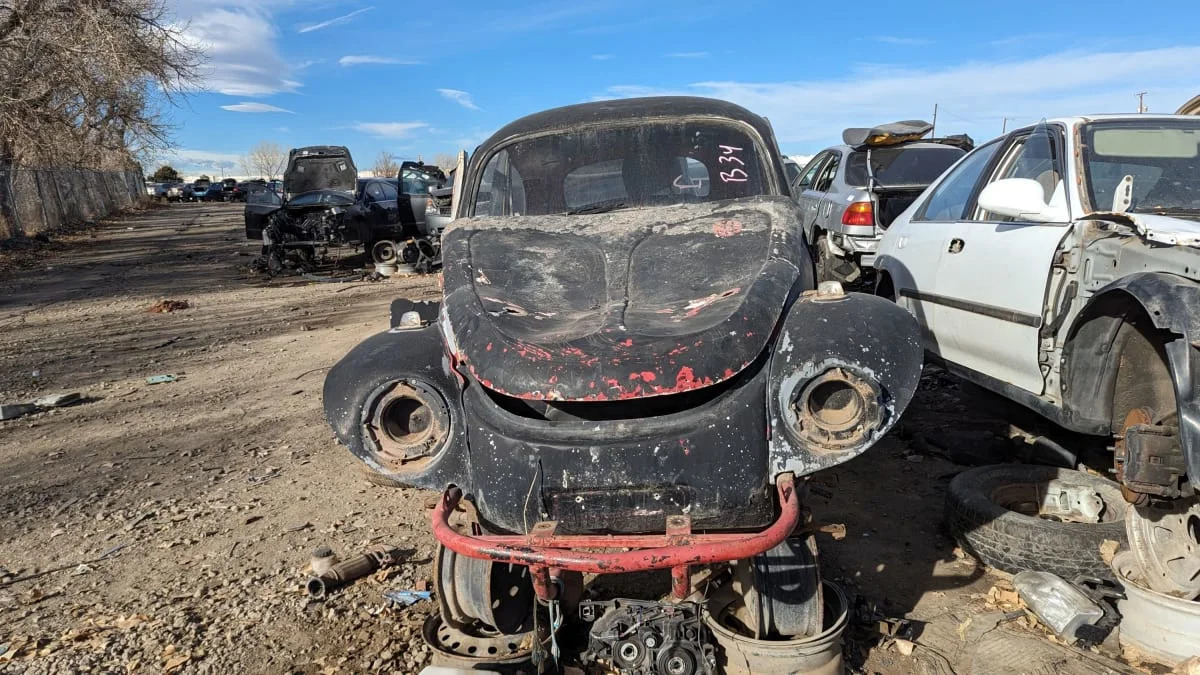
My car didn’t really count as a true Baja, because it lacked the lightweight aftermarket fenders and frunklid. This car got a proper Southern California-style Baja conversion, probably during the 1970s or 1980s.
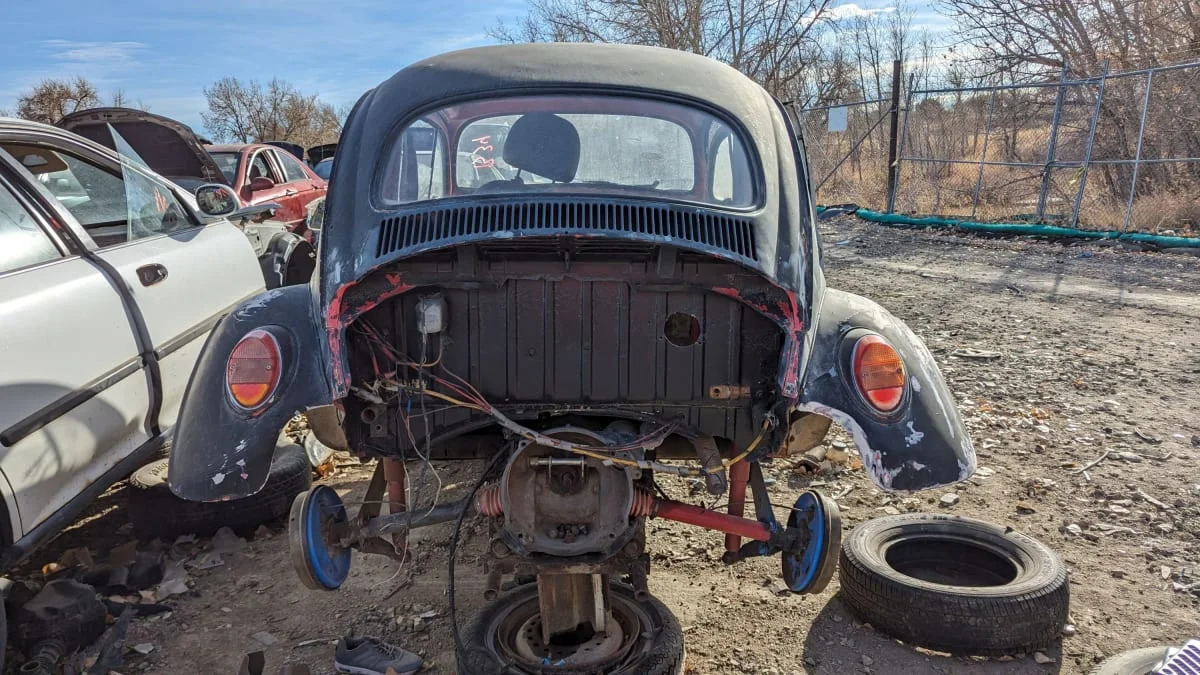
The factory build tag was long gone, perhaps as the result of informal title changes over the decades, but we can place the likely date of manufacture of this car by using certain clues. First of all, the rear window is the one used on U.S.-market Beetles from the 1958 through 1964 model years.
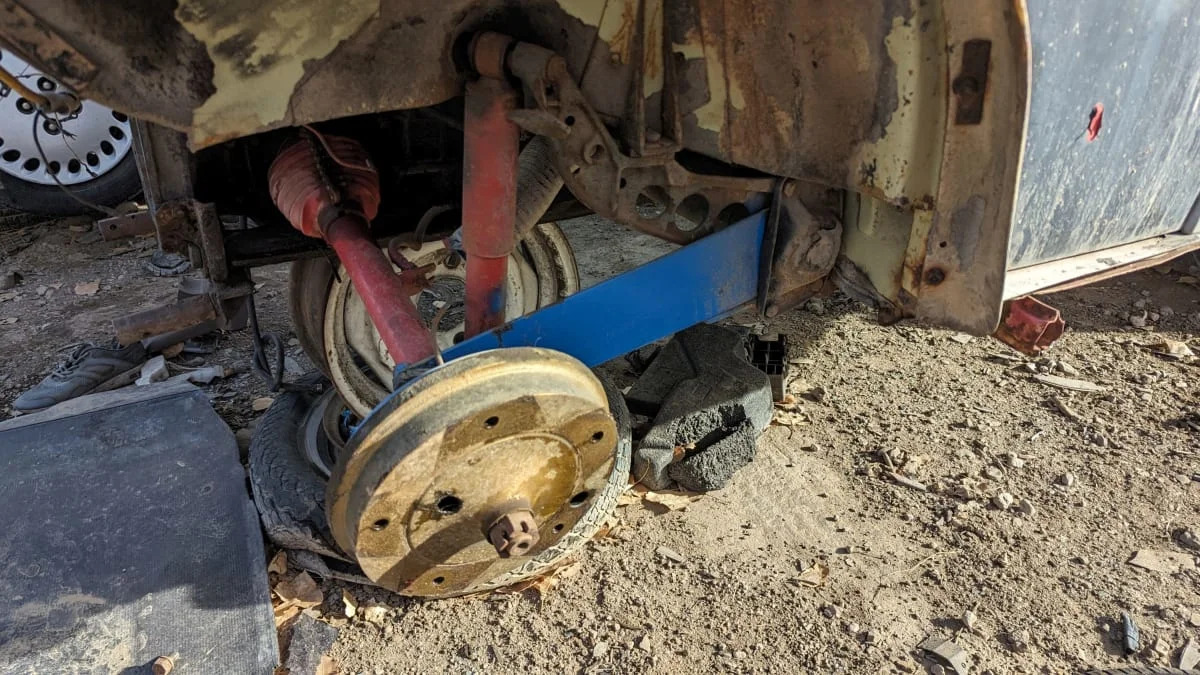
The swingaxle rear suspension came from a pre-1969 car, and the wheel bolt pattern on the brake drum indicates pre-1968 origins. This doesn’t mean much when you’re trying to identify the model year of a Baja Bug, because off-roaders prefer the swingaxle suspension to the later IRS and swap them in. This one has aftermarket blue spring plates.
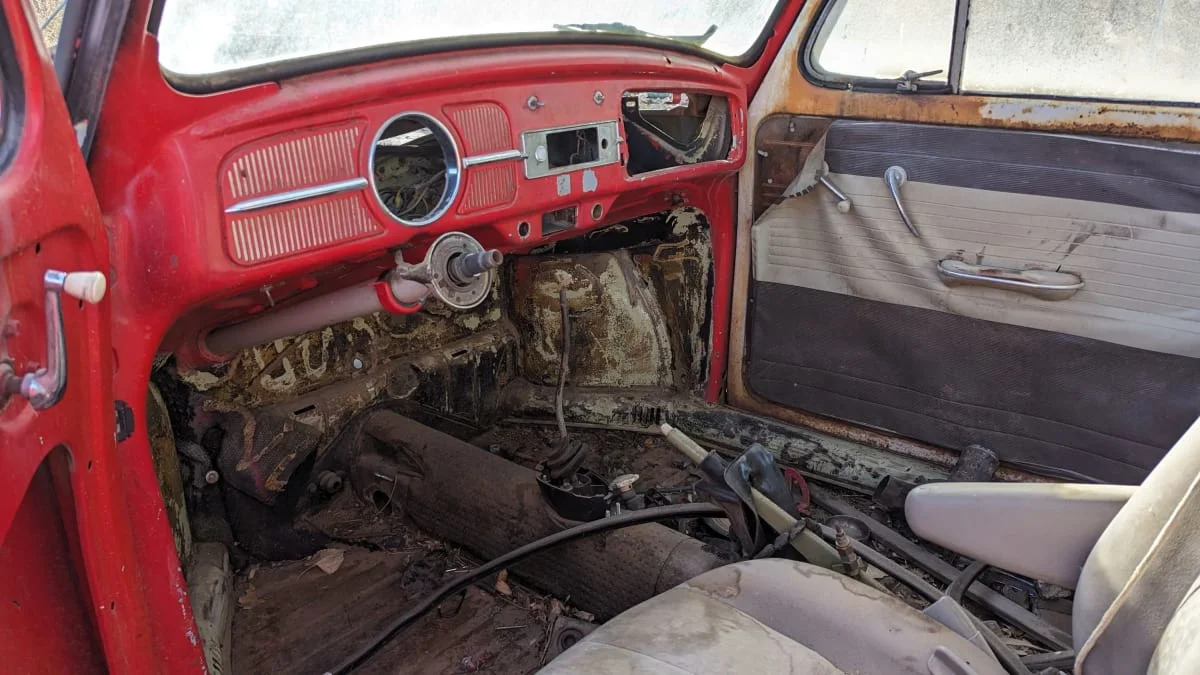
The Beetle sold in North America got a fuel gauge on the dash (using a purely mechanical system involving a bicycle-brake-style cable running to a float in the front-mounted fuel tank) starting with the 1962 model year. This car’s dash lacks the fuel gauge hole, which likely means it’s a 1958-1961 car. Of course, someone may have swapped in a pre-1962 dash panel, but then again the floorpan might be from a completely different vehicle, leading to a Ship of Theseus-type debate that never ends. There must be bits from a dozen Beetles here, anyway.
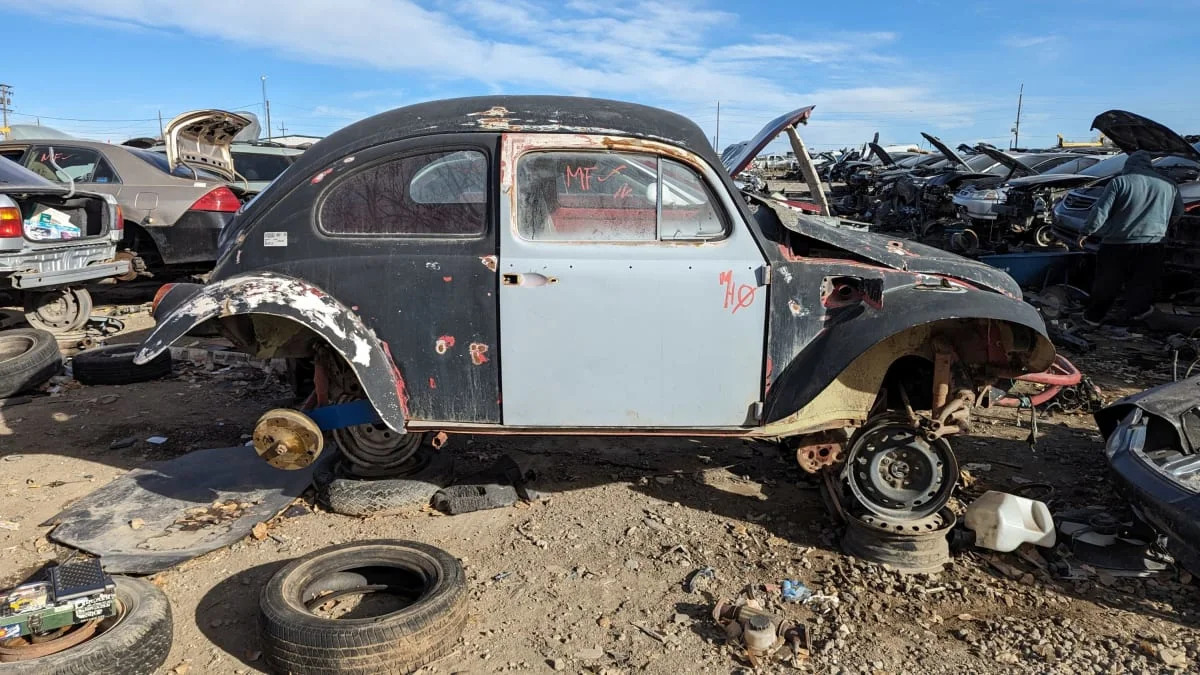
U-Pull-&-Pay thinks it’s a ’61, so we can assume that it came to the yard with some sort of information about its model year.
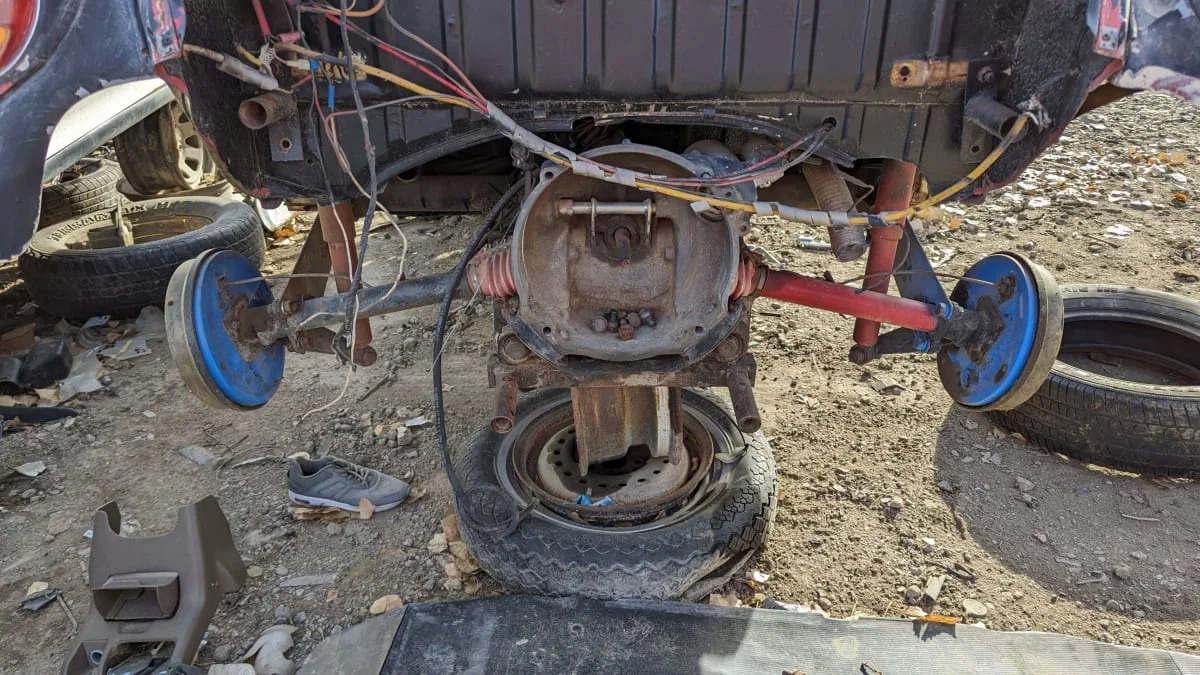
Someone yanked the engine before I got here, leaving the bolts inside the bellhousing. Air-cooled Volkswagen engines are still in demand, so they tend to get purchased quickly after appearing in a boneyard.
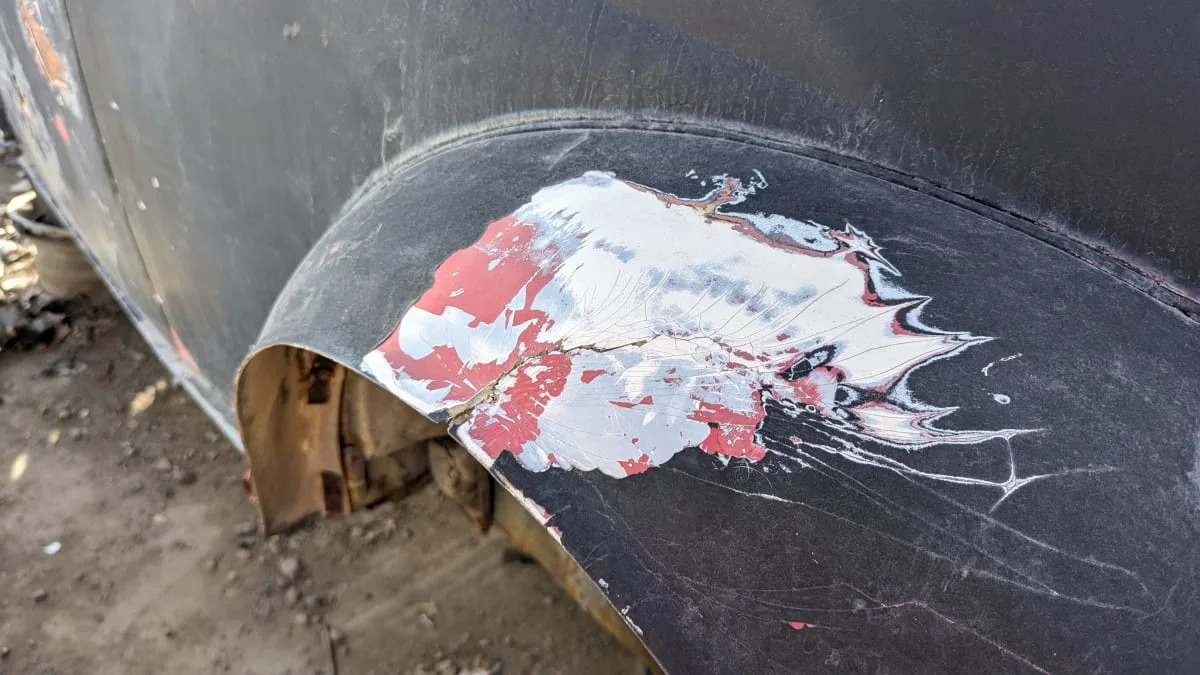
The fiberglass fenders have endured much suffering during their lives.
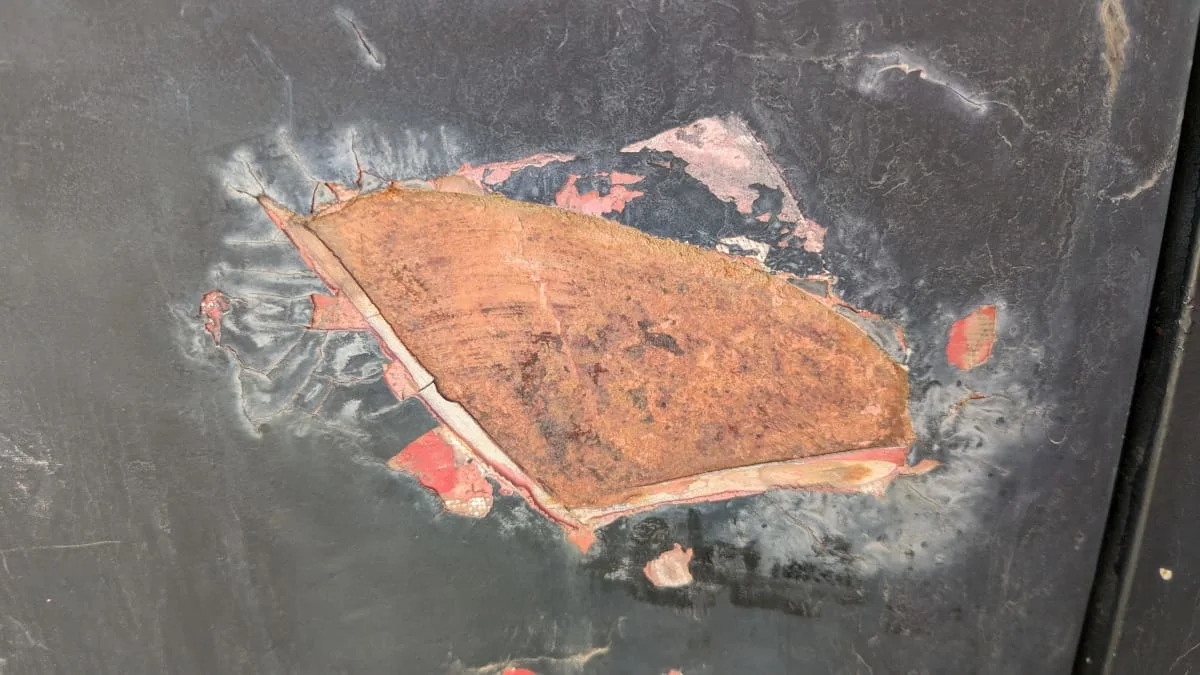
There’s plenty of thick body filler over old damage. The body started out red.
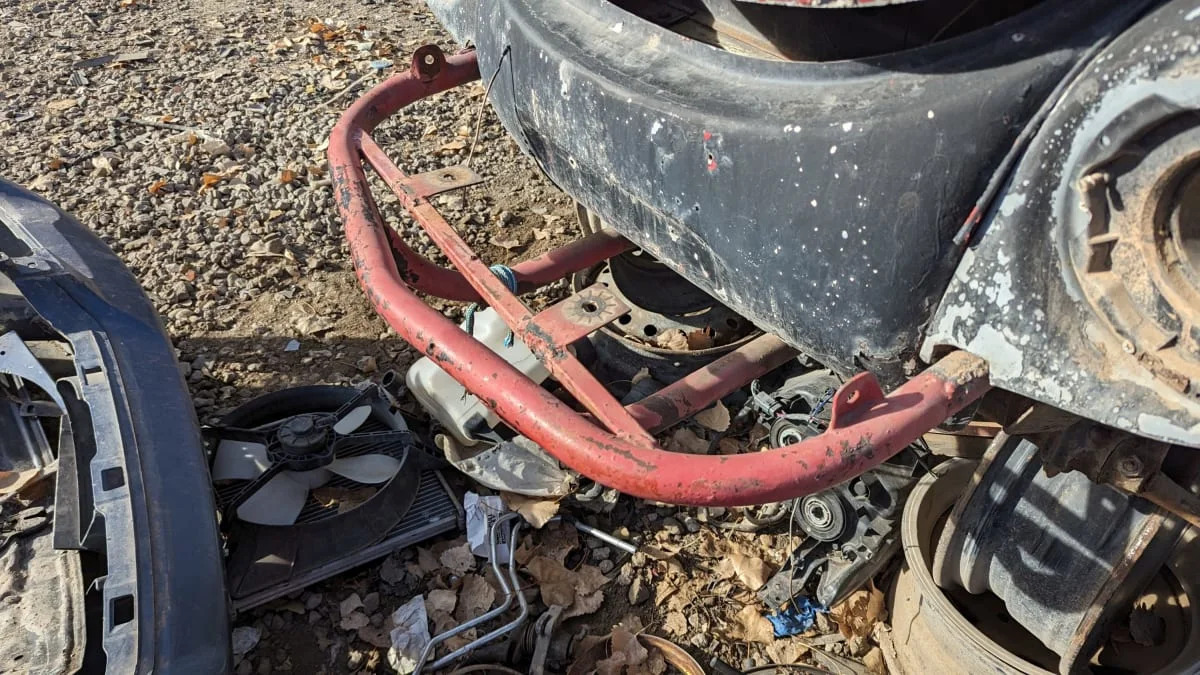
Off-road lights once lived on the tube bumper.
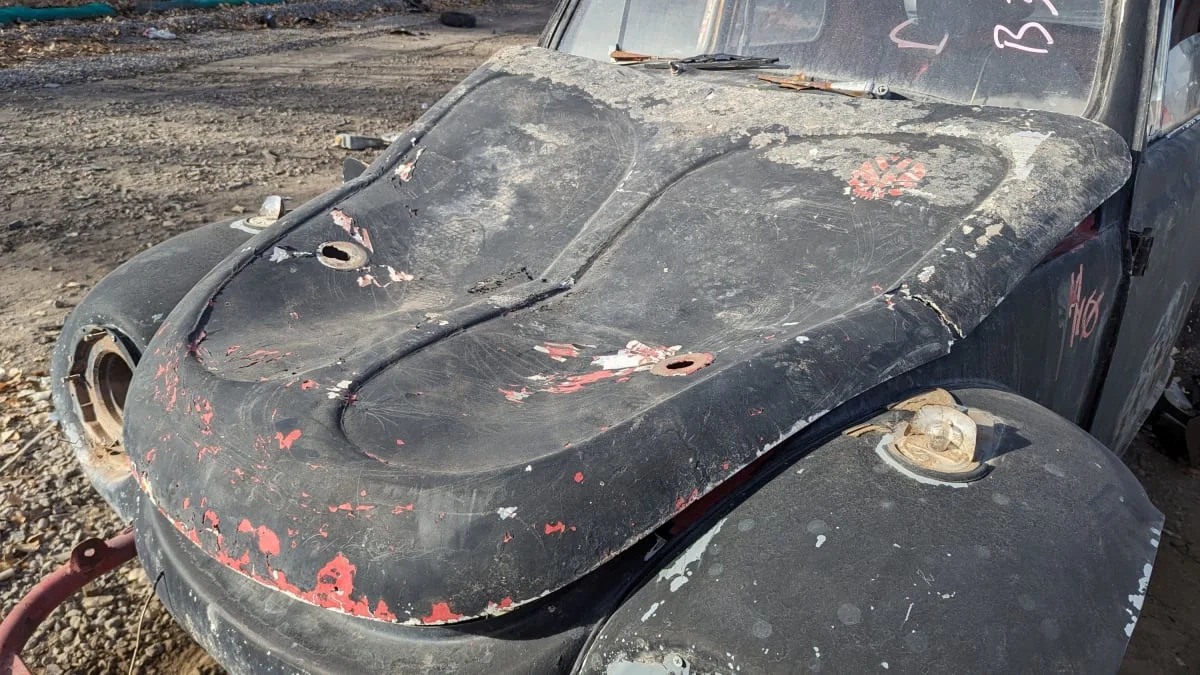
It lived a long and no doubt adventurous life.



